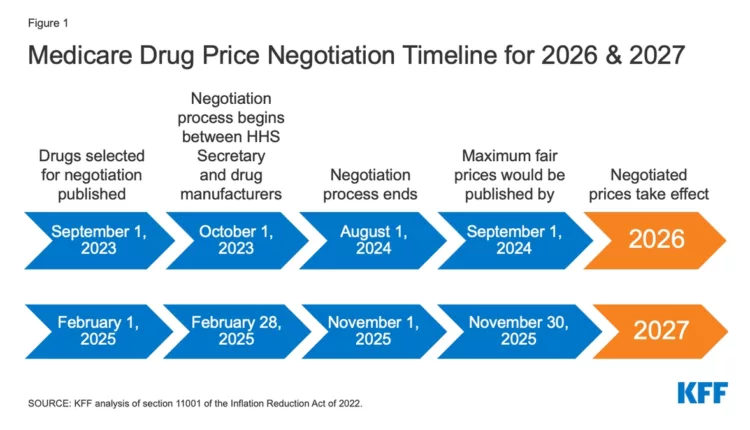
Impact of Inflation Reduction Act on Drug Prices & Innovation
TL/DR –
The introduction of the Inflation Reduction Act (IRA) in 2023 allowed Medicare to negotiate drug prices directly, leading to price reductions for certain drugs and impacting revenues for biopharmaceutical companies. The Biden administration is actively working towards lowering healthcare costs, and under the IRA, negotiations will include common prescriptions, with penalties for drug makers that increase prices faster than the inflation rate. Lessons can be learned from the United Kingdom’s approach to affordable medicine, specifically from the National Institute for Health and Care Excellence (NICE), which includes patients in decision-making processes and communicates with key stakeholders.
Understanding the Inflation Reduction Act and Its Impact on Drug Pricing
The Inflation Reduction Act (IRA) of 2023, a legislation promoting Medicare’s direct negotiation of drug prices, has debunked long-standing #BigPharma myths of #RxDrug pricing hindering innovation. This act has significantly reduced prices for small molecules and biologic drugs, and affected the revenue streams of biopharmaceutical companies and drug delivery technology providers.
The inaugural ten drugs negotiated in 2026 accounted for nearly $30 billion in net revenues, subsequent negotiations are expected to include a broad range of inhalers. The IRA allows the CMS to set a maximum fair price for up to 100 Medicare-covered therapies by 2031, beginning with products on Medicare’s Part D program. Commercial payers are likely to follow suit and renegotiate after CMS’s price declaration.
The Biden Administration’s Efforts to Lower Health Care Costs
Concurrently, the Biden administration is actively negotiating between Big Pharma and Medicare to lower prescription drug costs. The U.S. Food and Drug Administration is also re-evaluating psychedelic drugs for potential PTSD treatment.
Under the IRA, negotiations cover common prescriptions such as blood clots, diabetes, and arthritis medications. Price discussions remain confidential until Medicare officials disclose the maximum fair price. Fines may be levied on certain drug makers if their prices rise faster than inflation. As a result of these measures, Medicare enrollees could save over $2,700.
Insights from the United Kingdom’s Approach to Affordable Medicine
The United Kingdom’s National Institute for Health and Care Excellence (NICE) offers valuable insights for price negotiation. Despite criticism for its rigidity, NICE is appreciated for its transparency, patient involvement in the decision-making process, and communication with key stakeholders. This could be an effective model for other countries to follow.
Big Pharma’s unexpected admission has long-term implications for the pharmaceutical industry and stakeholders. It challenges traditional narratives around drug pricing and innovation, and highlights opportunities for positive change. The changing drug pricing landscape will continue to shape pharmaceutical innovation, necessitating stakeholders’ continuous adaptation and awareness.
—
Read More US Economic News
